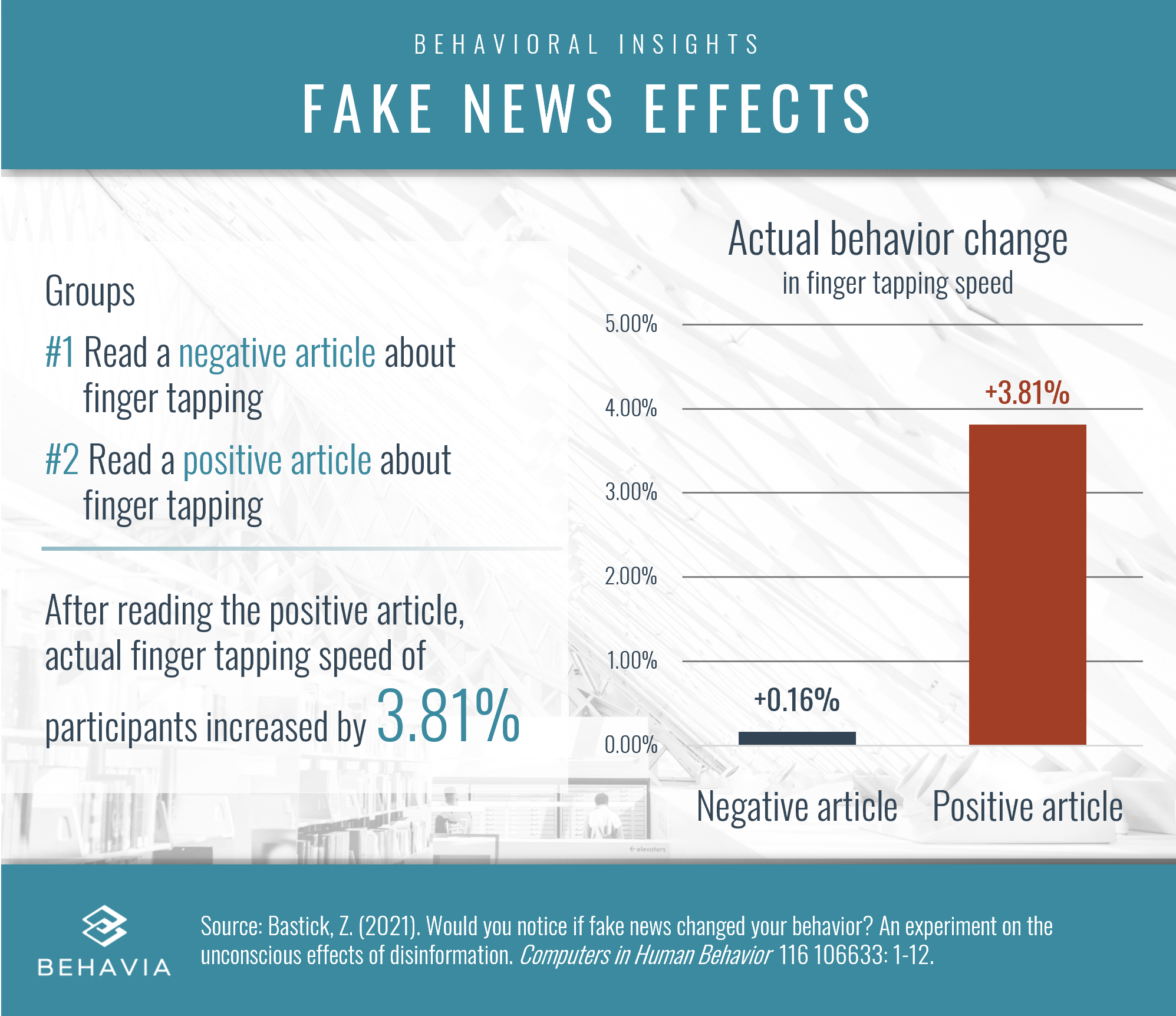Fake news effects

Have you ever wondered how exposure to fake news could affect your behavior? It might be deeper than you think.
Zach Bastick (2021) conducted a laboratory experiment in which he exposed participants to brief fake news articles. The articles made either positive or negative claims about the speed of finger tapping. The positive article claimed that fast finger tapping was a trait of socially successful people, while the negative article associated fast finger tapping with criminal behaviors.
The study found that the exposure to fake news had a noticeable effect on participants’ behavior: while the behavior of participants in the negative article group did not change significantly, the finger tapping speed of participants who read the positive article increased by 3.8%. Moreover, Bastick found no evidence that participants were actually aware of how the fake news articles affected their behavior.
The study cautions that fake news can in fact successfully incorporate covert behavioral manipulations. Under real-time reinforcement and repeated exposure to disinformation, this effect may even be amplified.
To the full article: https://doi.org/10.1016/j.chb.2020.106633